-
Day 1: Monday, 15 Sep, 20259:00 - 9:45Registration09:45 - 10:00
Co-Chair Opening Remarks and Welcome
Speaker(s):
Alexandra Valenti
PartnerGoodwinAlexandra Valenti is a partner in Goodwin’s Intellectual Property Litigation practice. She is a well-rounded and experienced litigator who focuses her practice on intellectual property and commercial matters across a variety of innovative industries. She is a core member of the firm’s renowned life sciences litigation team, and also brings substantial expertise in representing clients across the technology and consumer products sectors. Recognized in Benchmark Litigation’s “40 & Under Hot List” and by the IAM Patent 1000 and Managing IP, Alexandra has represented clients in numerous intellectual property and commercial disputes in federal courts nationwide, including significant victories after trial and on appeal.
Time:9:45-10:00Session Type:General Session (Presentation)10:00 - 11:00IP Monetization: Trade Secret – Harmonization or Counteraction?
Monetizing intellectual property (IP) through patents and trade secrets can be a highly lucrative strategy for businesses, but it comes with its own set of legal challenges and issues. This panel session will seek to determine legal issues surrounding IP monetization and brings clarity immediate issues:
Legal Issues:
- Licensing trade secrets to third parties
- Commercializing trade secrets through joint ventures or partnerships
- Internal processes for maintaining confidentiality while commercializing trade secrets
Methods for Monetizing Trade Secrets:
- Explore the nature of the innovation
- What are competitive advantage considerations—long-term trade secret protection vs. temporary monopoly of a patent
- What are the market conditions and potential buyers/licensees—are they more likely to value the exclusivity of a patent or the secrecy of a trade secret?Speaker(s):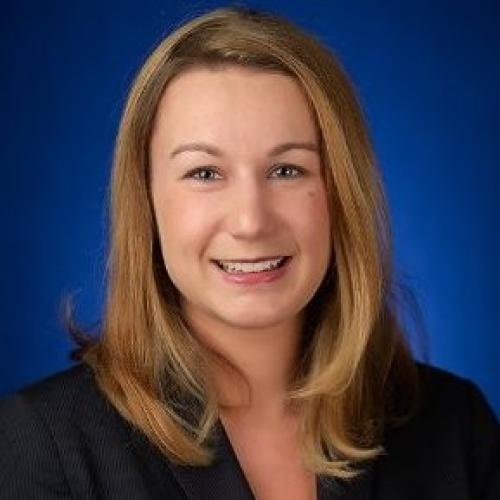
Jamie Simpson
Chief Policy Officer and Counsel, C4IPFormer Chief Counsel on the House Judiciary Subcommittee on Courts, IP, and the Internet and Associate Solicitor at the USPTO
Mike Binns
Director and Associate General Counsel, Head of Patents & Trade SecretsMetaMicheal Binns is Head of Patent Portfolio Strategy for Meta’s Family of Apps and an Associate General Counsel on the Patent, Licensing, and Open Source team at Meta, formerly Facebook. Michael also leads Meta’s IP Trade Secret and Design Patent protection strategies. As a registered patent attorney, Mike’s helped protect global copyrights and trademarks in addition to patent rights for a wide range of industries. At present, he advises on global IP portfolio strategy and risk mitigation related the future of social networking, AR/VR, and the metaverse. Micheal has and continues to protect the knowledge, systems, and inventions that are business-critical drivers of revenue.
Before joining Facebook, Micheal was the Atlanta Office Development Partner at Parker Poe Adams & Bernstein LLP, where his experience included the litigation, counseling, and prosecution of all forms of intellectual property related to a variety of industries and technologies.

Brad Scheller
MemberMintzTime:10:00 - 11:00Session Type:General Session (Presentation)11:00 - 11:30Networking Break11:30 - 12:30Patents and Trade Secret: Exploring the Cost vs Opportunities:
Patents and trade secrets are two key forms of intellectual property protection, but they operate differently and come with distinct advantages and challenges. This panel session will provide the intricate details on when either form of IP
protection is favoured over the other:- Examine how Patent and trade secret protection can dovetail:
- Strategies for where both protections can work together to lock down IP protection for innovationSpeaker(s):
Julie Lappin
Senior IP CounselNestleJulie is a Senior IP Counsel at Nestlé S.A. She has worked for multiple business units in her 14+ year career with Nestlé, including Coffee, Nestlé Health Science, and PetCare. Julie significantly contributed to developing and deploying Nestlé's trade secret protection program. Before joining Nestle, she was a Corporate Patent Counsel at Pfizer Inc.
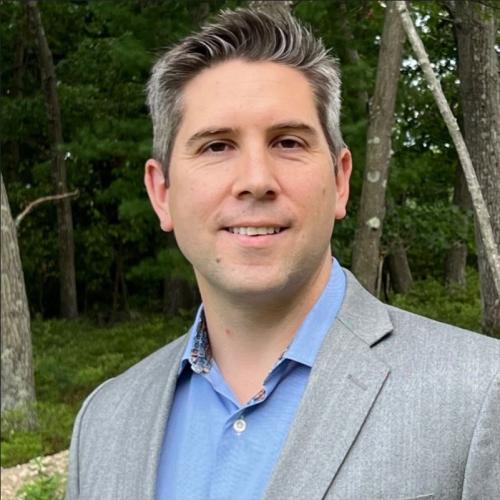
Joseph D'Angelo
Head of IP LitigationAnalog DevicesJoseph D’Angelo is a results driven legal partner with more than 15 years of corporate legal department experience at Fortune 500 companies. Extensive experience assisting businesses with intellectual property, litigation, technology licensing, complex negotiations, mergers and acquisitions, commercial law, and supplier matters.

David Magee
Intellectual Property & Technology ShareholderGreenberg TraurigTime:11:30 - 12:30Session Type:General Session (Presentation)12:30 - 1:30Networking Lunch1:30 - 2:00FIRESIDE CHAT: General Counsel Shares Importance of Trade Secret Risk Mitigation and Litigation Challenges
Speaker(s):
Brian D. Walters
Executive Vice-President, General Counsel & Corporate SecretaryMatthews InternationalBrian serves as Executive Vice-President, General Counsel & Corporate Secretary for Matthews International Corporation having joined the Company as corporate counsel in January 2005 and having been promoted to the role of General Counsel in February 2009. Brian directs all legal operations for the Company globally, in addition to serving as a member of Matthews’ executive leadership team.
Established in 1850, Matthews now operates 3 very diverse business segments in over 35 countries. In 20 years of leading the legal function for Matthews, Brian has directed over 80 mergers and acquisitions, varying in size, complexities, industries and geographies. During that same period, the annual revenue of the Company has more than tripled to approximately USD 1.8 Billion.
Brian is also responsible for developing and directing various global compliance programs addressing trade secret protection, anti-trust, anti-corruption, data protection, export controls and insider trading.

Matthew Murphy
PartnerAxinnTime:1:30 - 2:00Session Type:General Session (Presentation)2:00 - 3:00Litigation Strategy: Explore Differences in Offensive and Defensive Litigation Mechanisms for Patent & Trade Secret Court Cases
Intellectual Property (IP) litigation, especially in patent and trade secret cases, can be a critical battleground for businesses trying to protect their innovations. Whether defending their rights or asserting them, companies
need to understand the strategic dynamics of offensive vs. defensive litigation.- Understand the core differences between offensive and defensive litigation in patent and trade secret disputes.
- Learn the strategic advantages and risks of initiating litigation versus responding to a lawsuit.
- Explore the best practices for managing complex IP cases, including litigation timing, settlement negotiations, and strategic use of court motions.
- Gain insights into navigating the evolving landscape of patent and trade secret law, including challenges posed by technology and international jurisdiction
- Navigating Non practicing entity (NPE) Litigation scenariosSpeaker(s):
Lana Gladstein
General CounselSeaport TherapeuticsLana Gladstein currently works as a General Counsel for Seaport Therapeutics. She previously worked at APRINOIA Therapeutics as a Group General Counsel. Lana Gladstein attended Northeastern University School of Law.

Brad Bidwell
Assistant General Counsel - IP and HRKnowles Corporation
Robert Frederickson III
PartnerGoodwinRobert Frederickson, a partner in Goodwin’s Intellectual Property Litigation practice and co-chair of the firm’s Life Sciences Disputes sector, represents life sciences, technology and financial services companies in intellectual property litigation and complex commercial disputes. Robert is an experienced IP trial lawyer, having tried numerous cases to juries and judges across the country. He has won hundreds of millions of dollars in jury verdicts in patent and trade secret cases and has successfully defended life sciences and technology companies accused of intellectual property infringement and misappropriation. Robert also focuses a large part of his practice representing life sciences and technology companies in complex, commercial arbitrations, involving licensing disputes.
Time:2:00 - 3:00Session Type:General Session (Presentation)3:00 - 3:45Networking Break3:45 - 5:15 (90 minutes interactive workshop)IP Thinktanks 2025: Specialised Workshops Designed to Enhance and Discover Practical SolutionsComprehensive Trade Secret Protection Strategy In The U.S: Filing, Strategy, Remedy, Enforcement and Insurance
Speaker(s):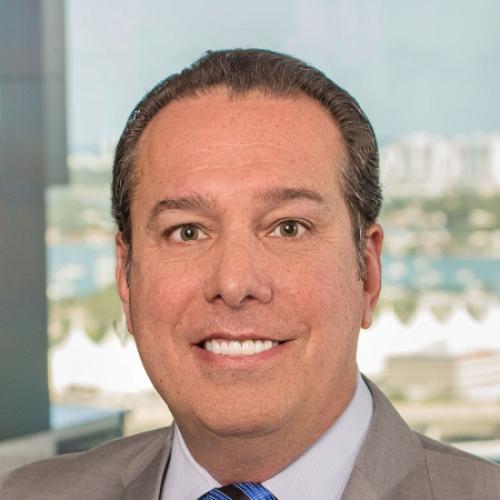
James Gale
Co-Chair (IP Litigation)Cozen O'Connor
Barry Golob
Co-ChairCozen O’ConnorSession Type:General Session (Presentation)Trade Secret Case Management Judicial Guide
Speaker(s):
James Pooley
Former Deputy Director GeneralWIPO
Victoria Cundiff
Adjunct Professor, PennCarey Law SchoolUniversity of PennsylvaniaSession Type:General Session (Presentation)DEI in IP – why is this important?
Session Type:General Session (Presentation)5:15 - 6:15Evening Drink Reception Hosted By Archway Research
-
Day 2: Tuesday, 16 Sep, 202508:15 - 09:00Registration09:00 - 09:15Co-Chair Opening Remarks and Welcome09:15 - 10:00
Opening Keynote Address: “Role of Trade Secret Legal Protection in The New Trump Administration”
Speaker(s):
Gregory Bombard
ShareholderGreenberg Traurig, LLPGregory S. Bombard is a trial lawyer whose practice focuses on trade secret litigation. Greg also handles other IP litigation and complex commercial disputes. His trade secret clients are primarily in high tech industries, including biotech, medical devices, software, robotics, fintech, and manufacturing. Greg is an author of the ABA’s Guide to Protecting and Litigating Trade Secrets, 2nd Ed., and co-chairs of the ABA’s Trade Secret Litigation Subcommittee. Greg is a shareholder in the Boston office of the international law firm Greenberg Traurig, LLP. He can be reached at [email protected].

John Lee
Chief Counsel for Intellectual PropertyU.S. House of Representatives, Committee on the JudiciaryTime:09:15 - 10:00Session Type:General Session (Presentation)10:00 - 11:00Trade Secret 2025 U.S. Case Law Review: Damages, DTSA Extra Territorial Reach and Reasonable Measures
Trade secret cases have continued to evolve in response to changing business environments, technological advancements, and legal frameworks. As we move further into 2024, several trends are emerging in trade secret litigation, influenced by factors such as globalization, digitalization, and the increasing complexity of intellectual property protection.
- Discover the latest legal updates in Motorola v. Hytera its subsequent effect on Beijing Meishe v. TikTok, 2024 on the
extraterritorial reach of DTSA
- Determine when can plaintiff can recover investment in R&D vs when on loss profits?
• Dissect case law in Pegasystems v. Appian and Echospan v. Medallia to seek out reasoning behind monetary remediesSpeaker(s):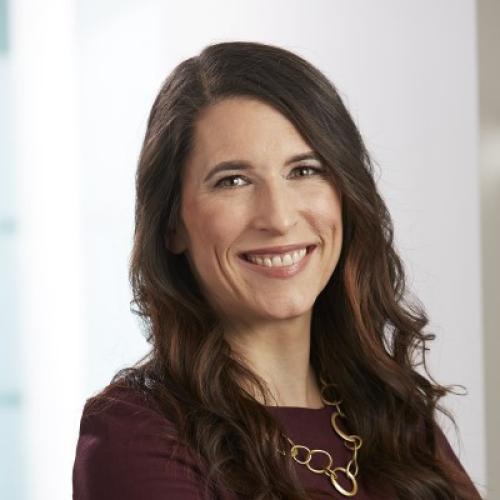
Bridget Smith
Assistant General Counsel, IPRelativity Space
Ken Corsello
US Trade Secrets Counsel / Patent Licensing CounselIBM CorporationKen Corsello is an IP Law Counsel at IBM. He currently focuses on drafting and negotiating patent licenses and assignment agreements. At IBM, he has worked on patent procurement, litigation, client counseling, product clearance, and IP transactional matters.
Before joining IBM, Ken was a law clerk to Chief Judge Glenn Archer at the Federal Circuit; an Associate Solicitor in the USPTO; and in private practice at law firms in Washington, D.C. He did his undergraduate work in Computer Science at SUNY Stony Brook, received his JD from the Catholic University, and obtained an LL.M. from George Washington University.
Ken has been the chair of IPO’s Trade Secrets Committee since 2016. His recent presentations on trade secret law include participating in a panel at the USPTO’s “Trending Issues in Trade Secrets: 2019” symposium and as a witness on behalf of IPO at the 2018 hearing on “Safeguarding Trade Secrets in the United States” held by the U.S. House Committee on the Judiciary, Subcommittee on Courts, Intellectual Property, and the Internet.

Tom Brown
Senior Managing Legal Director, Head of Intellectual Property LitigationDell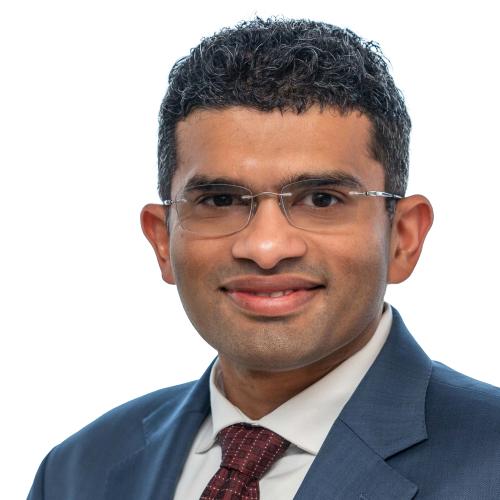
Giri Pathmanaban
PartnerCleary GottliebGiri Pathmanaban’s practice focuses on high-stakes patent, trade secret, and intellectual property contractual disputes. He has successfully represented clients in federal district courts, the International Trade Commission (ITC), and Patent Office proceedings. Giri simplifies complex issues, communicates effectively with clients and juries, and advises clients on IP issues to help achieve their business objectives. Giri’s technical background in computer science and engineering enables him to develop and execute winning legal strategies across a range of industries, inside and outside the courtroom. He has litigated cases in a range of industries, including cybersecurity, AI and machine learning, semiconductors, computer networking and electronic devices, internet and cloud computing, and medical devices and healthcare.
Time:10:00 - 11:00Session Type:General Session (Presentation)11:00 - 11:30Networking Break11:15 - 12:15Trade Secret Litigation Strategy 2025: Reasonable Measures, Jury Selection and Remediation Trade secret misappropriation is a critical concern for businessesTrade Secret Litigation Strategy 2025: Reasonable Measures, Jury Selection and Remediation
Trade secret misappropriation is a critical concern for businesses seeking to protect their most valuable and sensitive intellectual property. However, the path to litigation in trade secret cases requires a strategic approach, involving everything from identifying the theft, proving the misappropriation, and navigating complex legal frameworks. As businesses face increasing risks from cyber threats, employee departures, and competitor actions, a well-thought-out litigation strategy is more important than ever.
- Determine the current requirement for trade secret owner to exercise “reasonable efforts” (UTSA) or “reasonable measures” (DTSA) to protect the information.
- Understand the critical elements required to build a strong case in trade secret misappropriation.
- Learn about the steps involved in securing evidence and effectively proving misappropriation.
- Gain insights into how to prevent trade secret theft before it occurs and how to respond effectively if theft happens.
- Explore strategies for settling or resolving trade secret cases before they go to trial.
- Understand the key legal and practical issues involved in defending against trade secret misappropriation claims.
- Explore current trends on jury instructions during trade secret litigation cases.Speaker(s):
Victoria Cundiff
Adjunct Professor, PennCarey Law SchoolUniversity of Pennsylvania
Ksenia Takhistova
Chief Legal OfficerLCM Biosensor Technologies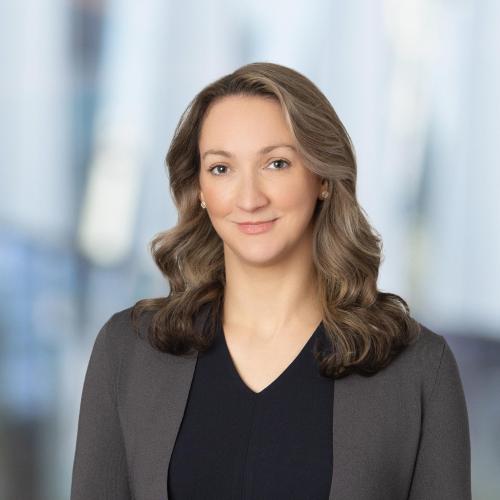
Lauren Uhlig
PartnerWilliams & Connolly
David Soucy
Sr. IP Counsel, Global Lead Patent CounselSimpliSafeDavid Soucy is Sr. IP Counsel and Global Lead Patent Counsel at SimpliSafe. David is an accomplished attorney with several years of experience handling a variety of technology and intellectual property law matters. Throughout his career, he has been dedicated to driving innovation, protecting intangible property, and supporting business growth through strategic management of IP assets.
Having held various roles in both late startups and mature operating companies, David has honed his expertise in patent prosecution, litigation, and client counseling. His professional journey has taken him from overhauling submarines as an engineer with the Department of the Navy to representing Fortune 100 clients in private practice to now serving as a Lead Global Patent Counsel where he develops and implements corporate IP strategies.
Before joining SimpliSafe, David influenced and drove IP strategies at a Fortune 1000 publicly traded technology company. There, he managed an extensive worldwide patent portfolio and streamlined IP management systems to enhance efficiency and augment protections. Due in part to his efforts, the company was recognized by the Intellectual Property Owners Association as one of the top 300 companies for granted U.S. patents.
David holds a Juris Doctorate from the University of New Hampshire Franklin Pierce School of Law and a Bachelor of Science in Mechanical Engineering from the University of New Hampshire. He is admitted to the State Bar of New Hampshire and licensed to practice before the United States Patent and Trademark Office.
Time:11:15 - 12:15Session Type:General Session (Presentation)12:15 - 1:15Networking Lunch1:15 - 2:00Special Interview: Building a Comprehensive Trade Secret StrategySpecial Interview: Building a Comprehensive Trade Secret Strategy Fortune Shieh
Speaker(s):
Dr. Fortune Shieh
Chairman of Taiwan Association for Trade Secret Protection Associate General CounselTaiwan Semiconductor Manufacturing Company, Ltd.
James Pooley
Former Deputy Director GeneralWIPOTime:1:15 - 2:00Session Type:General Session (Presentation)2:00 - 2:15Comfort Break2:15 - 3:45Trade Secret Specialism Sessions: IP, Labour and Data ProtectionThe Debate: Round 2 – To Catalogue or Not to Catalogue Your Trade Secrets
- Different rationale on whether you can log trade secret IP?
• Differences in industries?
• How companies operate that may provide different rationale
- What variables are available to track their trade secret?
- How their industries operate,
- Examine examples of cost/benefits of trade secret tracking
- How to effectively mark, catalogue trade secret – to avoid litigation
• What tools and controls are available.
• How many categories do you use?
- How do you define different sensitivity issue and audits.Speaker(s):
Shane O`Neill
Legal DirectorRiyadh AirShane O’Neill trained and qualified as a competition lawyer at Freshfields Bruckhaus Deringer where he advised clients in the aerospace and aviation sectors on merger control and antitrust regulatory matters. Since moving in-house he has advised on a broad range of matters including IT outsourcing, IP licensing, data protection, IPO, cybersecurity, commercial negotiations with aerospace OEMS, corporate transactions, and IP strategy.
Currently, he is Assistant General Counsel at Norsk Titanium, a global leader in metal 3D printing which supplies components to the aerospace, defence, and industrial sectors. He is responsible for a number of corporate areas including driving the company’s IP strategy, creation of IP awareness, trade secret protection, IP portfolio management, IP risk reduction, IP collaboration and cybersecurity.

Erica LoRe
Senior Director, Intellectual Property CounselInvivyd
Wil Rao
Patent AttorneyMcAndrews, Held & Malloy, Ltd
Laurence Shumway
Vice President, Intellectual Property CounselFlagship PioneeringLarry Shumway joined Flagship Pioneering in 2018 and serves as Vice President, Intellectual Property Counsel. He is responsible for developing, implementing, and managing IP and related legal strategies for Flagship’s enterprise companies, as well as setting institutional policies and designing educational courses.
He has more than 15 years of industry and law firm experience, specializing in biologics and biotechnology. As inhouse counsel at Takeda, GSK, and Novartis, he designed and managed complex IP portfolios around innovative large molecule platforms and assets in oncology, immunology, and vaccines, and led IP and legal functions on transactional and project teams. He began his legal career in the IP boutique firms of Hamilton, Brook, Smith and Reynolds, PC and Finnegan, LLP, focusing on evaluating and protecting complex biologics and inventions at the interface of biology with different technical fields.
Larry studied law at Boston College (J.D.) and earned his Ph.D. in biophysics from Harvard University on an NSF fellowship. He earned B.S. degrees in biochemistry and molecular biology and in mathematics and statistics from the University of Massachusetts, Amherst, on Goldwater, Beckman, and Pfizer scholarships.
Time:2:15 - 3:00Agenda Track No.:Track 1Session Type:General Session (Presentation)Creating a Wholistic Trade Secret Working Group – What Do Everyone Bring to the Table?
Speaker(s):
Kelly Burke
Associate Senior Legal Counsel- IP InvestigationsAdobeKelly Burke is Associate Senior Legal Counsel, IP Investigations at Adobe, where she focuses on IP investigations and protection, and leads the Trade Secret Protection Program. Prior to that, she was Senior Security Counsel at Apple, concentrating on insider threats. Before she went in-house, she was a prosecutor for more than a decade at the San Francisco District Attorney’s Office, where she specialized in trying complex white collar, public corruption, and public integrity criminal cases.
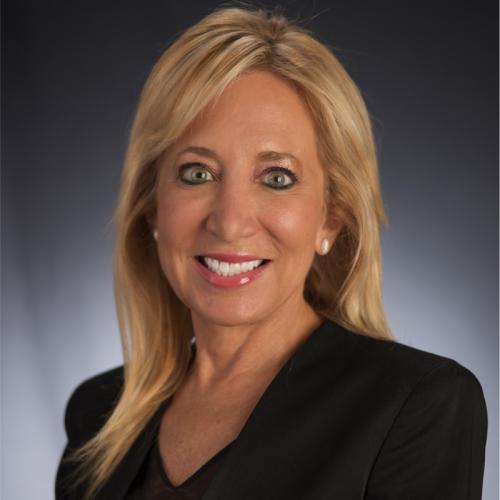
Diane Fiddle
General CounselQloo
Julie Lappin
Senior IP CounselNestleJulie is a Senior IP Counsel at Nestlé S.A. She has worked for multiple business units in her 14+ year career with Nestlé, including Coffee, Nestlé Health Science, and PetCare. Julie significantly contributed to developing and deploying Nestlé's trade secret protection program. Before joining Nestle, she was a Corporate Patent Counsel at Pfizer Inc.
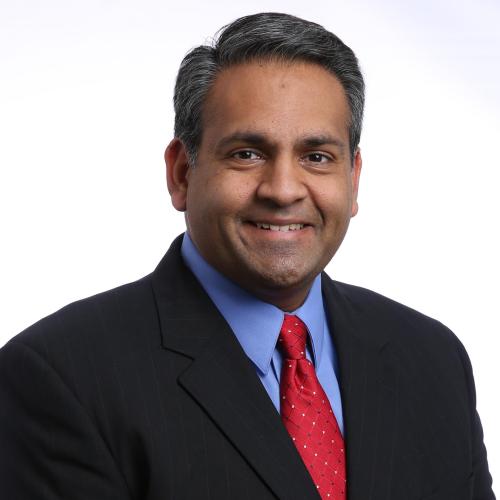
Damon Gupta
Director, Patent CounselSpark Therapeutics, IncDamon Gupta is a Director, Patent Counsel at Spark Therapeutics, Inc., a leader in gene therapy and member of the Roche Group. With over a decade of experience in intellectual property (IP) law and a background in molecular biology, Damon advises biotechnology and pharmaceutical companies on patent strategy, IP transactions, and risk mitigation. At Spark, Damon leads efforts to protect proprietary assets, including trade secrets, manage IP disputes, and provides IP support to cross-functional teams, including R&D, manufacturing, and corporate transactions. Damon holds a J.D. from Chicago-Kent College of Law, an M.S. from Baylor College of Medicine, and a B.S. from The Ohio State University.

John Williamson
PartnerFinnegan, Henderson, Farabow, Garrett & Dunner, LLPJohn Williamson is a partner in Finnegan’s D.C. office. He advises companies on protecting and enforcing their intellectual property, with a strong focus on trade secrets and patent litigation. With more than 20 years of experience, John has represented clients in complex disputes before federal and state courts, the U.S. International Trade Commission, arbitration panels, and the U.S. Court of Appeals for the Federal Circuit. John works closely with in-house legal teams to develop IP strategies that align with business goals and mitigate risk. His practice includes trade secret investigations, litigation preparedness, and counseling on technical standards, economic exposure, and freedom-to-operate issues. He also supports clients in building and managing IP portfolios, helping them navigate competitive landscapes and protect proprietary technologies across a range of industries.
Time:3:00 - 3:45Agenda Track No.:Track 1Session Type:General Session (Presentation)Protecting Trade Secrets: Iron-Clad Strategies for Employee Onboarding and Offboarding
Protecting Trade Secrets: Iron-Clad Strategies for Employee Onboarding and Offboarding
Onboarding Strategies:
- Creating clear communication of the company’s trade secret policies and the legal implications of breaches.
- Design mandatory training sessions focused on data security and confidentiality.
- Drafting confidentiality agreements that reinforce the employee’s commitment to protecting sensitive information.Offboarding Strategies:
- How to effective exit interview to solidify departing employee of their confidentiality obligations.
- Determine when and best approach for revoking access to all company systems and retrieving company-issued devices.
- How to ensure the return or destruction of any physical or digital copies of sensitive information.
- Continuous monitoring the former employee’s activities post-departure to detect any potential data breaches.Legal Considerations and Enforcement:
- Discuss consequences of trade secret violations in employment contracts and company policies.
- How to take swift and decisive action against any breachesSpeaker(s):
James Gale
Co-Chair (IP Litigation)Cozen O'Connor
Ronald Sia Deputy GC
Technology & Brand; Enterprise Risk & ESG Compliance OfficerSimpliSafeRon serves as Deputy General Counsel - Technology and Brand, and Enterprise Risk and Sustainability Compliance Officer for SimpliSafe. Prior to joining SimpliSafe, he spent over a decade in a variety of in house legal roles at P&G / Gillette in Cincinnati and Boston, with his last role as Global Lead Commercial Counsel for the Gillette business unit. Ron studied Chemical Engineering and Economics at Tufts University and received his JD from UNH School of Law.

Amanda Betman
Employment Law Executive DirectorNovartis
Barry Golob
Co-ChairCozen O’ConnorTime:2:15 - 3:00Agenda Track No.:Track 2Session Type:General Session (Presentation)Collaboration and Risk Mitigation When Sharing Trade Secret Information
This panel session will examine legal nuances when promoting innovation and collaboration whilst at the same time safeguarding proprietary information
- Indemnification: Best practice for incorporating trade secret clauses
- Internal training: How to emphasis training, reporting and enhanced ethical behaviours
- Successfully establish a risk mitigation framework when collaborating with another party and ensuring reasonable measures are taken to protect your trade secret.Speaker(s):
Stephen Bychowski
Assistant General CounselSanofi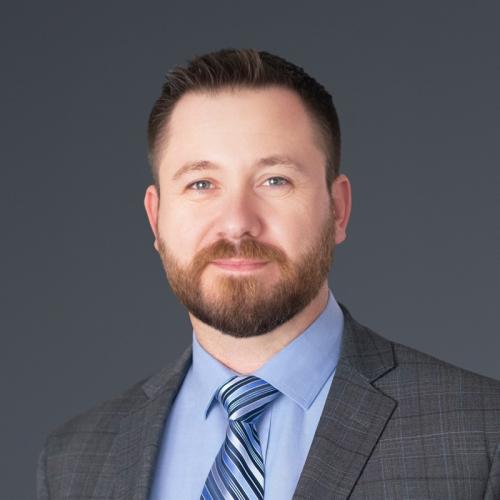
Will Cottrell
Executive Director IP LicencingRTX
Jeff Pade
PartnerPaul Hastings LLPTime:3:00 - 3:45Agenda Track No.:Track 2Session Type:General Session (Presentation)3:45 - 4:15Networking Break4:15 - 5:45Trade Secret Leadership RoundtableReasonable Trade Secret Protection Measures: Balancing Good Policy and Practical Reality.
Speaker(s):
Robert Kappers
PartnerSteptoe
John L. Abramic
PartnerSteptoeSession Type:General Session (Presentation)Confidential Information at the UPC: Access to review confidential information
Speaker(s):
Daniel Hoppe
PartnerBonabrySession Type:General Session (Presentation)Reverse Engineering Trade Secret Misappropriation Issues
Speaker(s):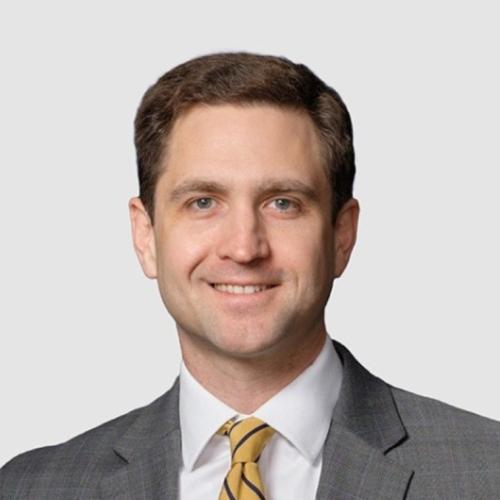
Clint Morrison
PartnerPatterson Belknap Webb & Tyler LLPClint Morrison is a commercial litigator, trial lawyer, and problem solver. A magna cum laude graduate of Harvard Law School who clerked on the U.S. Court of Appeals for the Second Circuit and a former actor who previously worked at a government relations and public affairs firm, Clint brings a unique perspective to his work helping clients find creative, effective solutions to their most complex and consequential challenges.
Clint has extensive trial experience in federal and state courts throughout the country. Last year alone, Clint played a key role in two trial wins: a $2 billion jury verdict in a high-profile trade secrets case between two software companies (the largest verdict in the history of the State of Virginia), and a victory for client Howard University in a bench trial in the Southern District of New York establishing the University’s superior claim of title to a historically significantly work by the renowned artist Charles White.
Clint focuses on complex commercial litigation and litigates cases involving trade secrets and intellectual property, contractual and business disputes, false advertising and unfair competition, and whistleblower claims under the False Claims Act. Clint also maintains an active high-stakes art law practice.
Clint’s approach is to unpack the intellectual legal and factual puzzles in every case, identify the key themes and narratives underlying each dispute, and navigate each stage of a litigation with an eye towards building a compelling, winning case before a judge or jury.
Clint was named to the 2023 and 2024 editions of Best Lawyers®: Ones to Watch, which recognizes outstanding professional excellence in private practice by attorneys who have typically been in practice for up to 10 years. He currently serves as the Secretary of the Federal Bar Council’s Public Service Committee.
Session Type:General Session (Presentation)Trade Secret Issues in Biologic/Biosimilar Products
Speaker(s):
Justin K. Victor
ShareholderGreenberg TraurigSession Type:General Session (Presentation)Building a Robust Global Trade Secret Legal Framework
Speaker(s):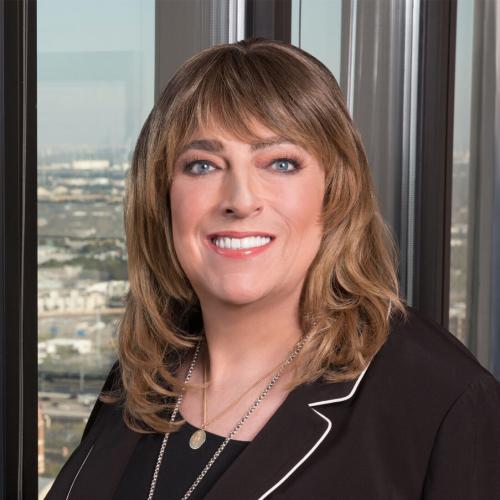
Danielle “DJ” Healey
PartnerSpencer FaneSession Type:General Session (Presentation)Trade Secrets and Patents as Symbiotic Mechanisms – Protection Management, Licensing, and Legal Enforcement
Speaker(s):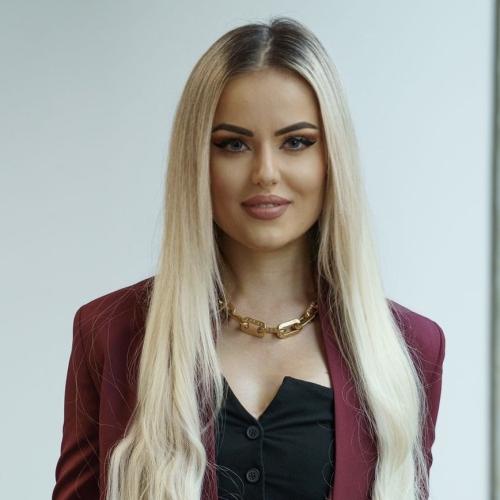
Melanie Müller
Attorney at Law (Germany)Boehmert & BoehmertSession Type:General Session (Presentation)5:45Conference Day 1 Ends – Co-Chair Remarks6:00Evening Networking Drinks -
Day 3: Wednesday, 17 Sep, 202508:15Registration Begins09:00 - 09:15Co-Chair Opening Remarks and Review Day 109:15 - 10:00
FTC Non-Compete – What’s the Final Verdict? Where do we go from here?
As of August 20, 2024, a federal court in Texas has blocked the FTC’s non-compete ban nationwide, effectively preventing the rule from taking effect due to concerns about the FTC’s authority to enact such a rule; this means employers are currently not required to stop using non-compete agreements with most employees, although legal challenges are ongoing and the FTC may appeal the decision.
- Exploring the use of non-compete agreements under state laws
- What Should Employers Do Next?
- Navigate legal grounds for federal vs state laws on non-compete issuesSpeaker(s):
Cathy Lui
PartnerOrrick
Ken Corsello
US Trade Secrets Counsel / Patent Licensing CounselIBM CorporationKen Corsello is an IP Law Counsel at IBM. He currently focuses on drafting and negotiating patent licenses and assignment agreements. At IBM, he has worked on patent procurement, litigation, client counseling, product clearance, and IP transactional matters.
Before joining IBM, Ken was a law clerk to Chief Judge Glenn Archer at the Federal Circuit; an Associate Solicitor in the USPTO; and in private practice at law firms in Washington, D.C. He did his undergraduate work in Computer Science at SUNY Stony Brook, received his JD from the Catholic University, and obtained an LL.M. from George Washington University.
Ken has been the chair of IPO’s Trade Secrets Committee since 2016. His recent presentations on trade secret law include participating in a panel at the USPTO’s “Trending Issues in Trade Secrets: 2019” symposium and as a witness on behalf of IPO at the 2018 hearing on “Safeguarding Trade Secrets in the United States” held by the U.S. House Committee on the Judiciary, Subcommittee on Courts, Intellectual Property, and the Internet.
Time:09:15 - 10:00Session Type:General Session (Presentation)10:00 - 10:30Trade Secret Case Law and legal Updates: China
Discover the growing importance of trade secrets in a patent dominated field:
- Implications for companies dealing with proprietary technologies
o “Vanillin Case”
• Understand how infringement occurred
• How the courts determine damage
• Subsequent impact on trade secret implications in China
o “Rubber Antioxidants Case”
• Determine the nature of the Trade Secret
• Legal consequence of employee breach of confidentiality
• Legal outcome and people’s supreme court’s attitude towards Trade Secret cases such as Automobile Chassis case; 2023, SPCIP Civil Final No. 1590Speaker(s):
Ping Gu
PartnerZhong Lun Law FirmTime:10:00 - 10:30Session Type:General Session (Presentation)10:30 - 11:00Networking Break11:00 - 11:45AI: Friend or Foe for Protecting Trade Secret?
Artificial Intelligence (AI) is transforming industries across the globe, but its impact on intellectual property—particularly trade secrets—is both promising and concerning. AI can be a powerful tool for enhancing security and protecting sensitive business information, but concurrently it poses new risks by potentially enabling advanced methods for reverse engineering or misappropriating proprietary knowledge. This panel will explore the dual-edged nature of AI in the context of trade secret protection.
- Whether or not 2026 will be the year for AI and trade secrets?
- Current update relating Deepseek and ChatGPT and trade secret misappropriation issues
- Impact of the AI act on companies relying on trade secrets to protect the trade secrets in their data.
- Best practice litigation of information that was related to AI Trade Secret
- How best to utilize AI inhouse to protect/create trade secret
- Increased cloud based IOT products to protect trade secrets when data is not stored locally but centrally
- Enhance trade secret training relating to AI and Algorithms
- How to enhance protection of your trade secrets during an opensource AI world?
- Identifying creator of trade secret: natural vs Ai
- U.S, Europe and Asia – Exposing AI risks in Trade Secret?
- Balancing disclosure requirement and protection of trade secrets in AI regulation.Speaker(s):
Dean Alderucci
Special Advisor for Artificial IntelligenceConnecticut General Assembly
Kerri Braun
Senior Corporate Counsel, Trade Secret and CopyrightCisco
Matthew Kohel
PartnerSaul Ewing
Jerry Ma
Vice President of Policy and Global AffairsPerplexity AIJerry Ma serves as Vice President of Policy and Global Affairs at Perplexity AI, partnering with government, civil society, and industry to advance democratic and universal AI. He concurrently serves on Perplexity’s technical leadership team, shaping technical strategy and driving core R&D initiatives to better serve millions of users worldwide.
Previously, Jerry was appointed as the first Chief AI Officer and Director of Emerging Technology at the U.S. Patent and Trademark Office. As co-chair of the agency's AI & ET Working Group, Jerry oversaw the development of trailblazing policy deliverables on AI-assisted inventorship, patent eligibility, legal practice, and more. Jerry also served as an executive on detail to the Office of the Assistant Attorney General for Antitrust, providing leadership on complex policy and enforcement matters that shaped the Antitrust Division's approach to AI and digital platforms, and building essential organizational capacity to meet 21st-century enforcement needs.
Time:11:00 - 11:45Session Type:General Session (Presentation)11:45 - 12:30How to Successfully Integrate Protection of Data Into Your Trade Secret Protection Policy
One of the biggest hurdles facing the Data Act’s implementation lies in finding the right balance between free access to data and protection of the trade secrets of manufacturers or data holders:
- How the viewing data as trade secret?-
- Examine trade secret provisions.
- How is this interpreted
.- How are other interpreted.
- What kinds of provisions
- How to trade secret data?
- Can raw data be a trade secret?
Speaker(s):
Arian Hassanalizadeh
General Counsel & Chief Compliance OfficerOrigin
Hannah Joseph
Senior Director of Trade SecretRegeneronHannah T. Joseph serves as Director of Trade Secrets at Regeneron Pharmaceuticals, Inc. At Regeneron, she drives strategy for the protection of trade secrets and proprietary information. Before joining Regeneron, Hannah worked at Beck Reed Riden LLP, a boutique law firm in Boston, where she specialized in the areas of trade secrets law, restrictive covenants, and employee mobility for nearly a decade. Hannah holds a Juris Doctor from Boston College Law School and a Bachelor of Arts from Binghamton University.

Gregory Bombard
ShareholderGreenberg Traurig, LLPGregory S. Bombard is a trial lawyer whose practice focuses on trade secret litigation. Greg also handles other IP litigation and complex commercial disputes. His trade secret clients are primarily in high tech industries, including biotech, medical devices, software, robotics, fintech, and manufacturing. Greg is an author of the ABA’s Guide to Protecting and Litigating Trade Secrets, 2nd Ed., and co-chairs of the ABA’s Trade Secret Litigation Subcommittee. Greg is a shareholder in the Boston office of the international law firm Greenberg Traurig, LLP. He can be reached at [email protected].
Time:11:45 - 12:30Session Type:General Session (Presentation)12:30 - 1:30Networking Lunch1:30 - 2:30Trade Secret Litigation Inside Court Rooms (Views from the Bench): Incorporating Insights, Perspectives and Preferences from the Judiciary into Your Trade Secret Practice
Speaker(s):
The Honourable F. Dennis Saylor IV
Chief JudgeUnited States District Court for the District of Massachusetts
The Honorable Kent Jordan
DirectorRichards Layton & Finger (Former United States circuit Judge of the United States Court of Appeals for the Third Circuit)Kent A. Jordan is a Director in the Wilmington, Delaware law firm of Richards, Layton & Finger. Previously, since 2006, he served as a United States Circuit Judge for the Third Circuit. Before that, he was a United States District Judge for the District of Delaware from 2002 to 2006. Judge Jordan received a B.A. in Economics in 1981 from Brigham Young University and a J.D. in 1984 from Georgetown University. He was an Assistant United States Attorney and head of the Civil Division in the U.S. Attorney’s Office for the District of Delaware. Later, he served as an officer and as a member of the boards of directors of privately held businesses and was a partner in a law firm. He is an Adjunct Professor of Law at the University of Pennsylvania and Vanderbilt University and has served as President of the Board of Trustees of the American Inns of Court Foundation, as well as on the boards of other non-profit organizations.

The Honourable Cathy Bissoon
United States District JudgeUnited States District Court For The Western District Of Pennsylvania
Honorable Judge William G Young
Senior District JudgeUnited States District Court for the District of MassachusettsThe Honorable Faith Hochberg is a nationally recognized Federal Judge and former United States Attorney known for her broad expertise spanning judicial, federal law enforcement, and financial institution regulatory top level positions. In 2015, Judge Hochberg retired from the bench to found Hochberg ADR, LLC, which provides mediation, arbitration, and mock court exercises in high profile, complex matters in national and international litigation. Judge Hochberg serves as a court-appointed Monitor in international cybersecurity cases, and as a court-appointed Special Master in many cases in both federal and state courts, including complex multi-district litigation (MDL cases).
Judge Hochberg is a distinguished neutral admitted to the rosters of the AAA, ICDR, ICC, and CPR; she is a Fellow of the College of Commercial Arbitrators and a Fellow of the Chartered Institute. Her expertise broadly spans many areas of law: class actions, corporate contract, insurance, banking & financial institutions, securities, antitrust, trade secrets, pharmaceutical development and licensing, patent and other intellectual property litigation and licensing, merger and acquisition transactions, and partnership disputes.
Judge Hochberg was twice nominated by the President, and confirmed by the Senate, first as United States Attorney and then as a United States District Judge. During her tenure on the bench, she has presided over thousands of federal cases, including large class actions, securities, banking, patent and intellectual property, pharmaceutical intellectual property and licensing, antitrust, insurance, ERISA, corporate contract, construction related disputes, employment and partnership disputes, and others. The Judicial Panel on Multi-District Litigation appointed her to preside over large national multi-district cases, filed across the country and consolidated to be managed by Judge Hochberg. She is a frequent speaker both nationally and internationally on patent law, class actions, employment law, and alternative dispute resolution.
Judge Hochberg was invited to sit by designation on the Federal Circuit Court of Appeals, and served as a patent pilot judge with special expertise in this complex area of law. She was honored as the first Fellow of the Innovation Center for Law and Technology at New York Law School and also serves on the Center’s Advisory Board. She previously served on the Board of Trustees of the Lasker Foundation, acclaimed for its prominence in promoting outstanding research in science and medicine.
Judge Hochberg was the top federal law enforcement official when she served as the United States Attorney for the District of New Jersey, managing strategy and operations of the large public office. As Deputy Assistant Secretary of the United States Treasury Department, she spearheaded multinational tactics to combat money laundering, and was responsible for oversight of the Treasury Department’s enforcement agencies, including the Office of Foreign Assets Control [OFAC], the Bank Secrecy Office, as well as Secret Service, U.S. Customs Service and other agencies.
Judge Hochberg has developed risk management and civil regulatory enforcement criteria for financial institutions during her service as Senior Deputy Chief Counsel of the OTS during the S & L crisis.
Judge Hochberg received her law degree from Harvard Law School, where she graduated magna cum laude and was an Editor of the Harvard Law Review. Judge Hochberg graduated, summa cum laude, from Tufts University, and was elected to Phi Beta Kappa. She also attended the London School of Economics.
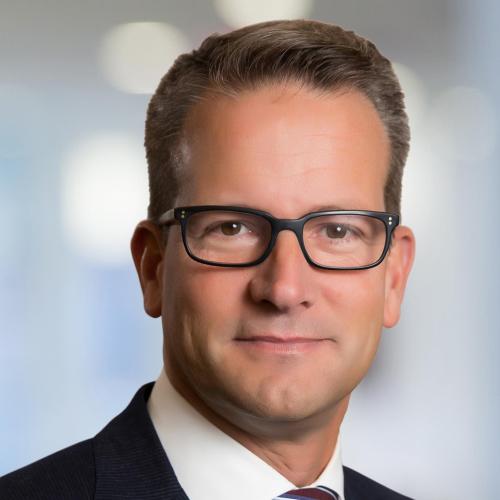
Paul Popeo
Co-ChairChoate, Hall & Stewart LLPTime:1:30 - 2:30Session Type:General Session (Presentation)2:30 - 3:15NEW! Ethics in Trade Secret Litigation
Trade secret litigation often involves highly sensitive and confidential business information, raising
significant ethical considerations for legal professionals, companies, and employees. Whether you are prosecuting or defending a trade secret case, the ethical challenges can be complex, especially when it comes to issues of confidentiality, misappropriation, and the use of trade secrets in litigation.- Understand the ethical challenges involved in prosecuting and defending trade secret claims, including how to handle confidential information.
- Learn about conflicts of interest and how to avoid unethical practices in trade secret cases.
- Gain insights into discovery procedures and the ethical responsibilities regarding the disclosure and handling of sensitive information.
- Explore the balance between aggressive legal tactics and adherence to professional ethical standards.
- Learn how to navigate ethical issues in settlement negotiations and the use of trade secrets as leverage in litigation.Speaker(s):
Kelly Burke
Associate Senior Legal Counsel- IP InvestigationsAdobeKelly Burke is Associate Senior Legal Counsel, IP Investigations at Adobe, where she focuses on IP investigations and protection, and leads the Trade Secret Protection Program. Prior to that, she was Senior Security Counsel at Apple, concentrating on insider threats. Before she went in-house, she was a prosecutor for more than a decade at the San Francisco District Attorney’s Office, where she specialized in trying complex white collar, public corruption, and public integrity criminal cases.

Ksenia Takhistova
Chief Legal OfficerLCM Biosensor TechnologiesTime:2:30 - 3:15Session Type:General Session (Presentation)3:15 - 3:30Co-Chair Closing Remarks and Conclusion of Trade Secret Boston 2025
Jump to: Monday, 15 Sep | Tuesday, 16 Sep | Wednesday, 17 Sep